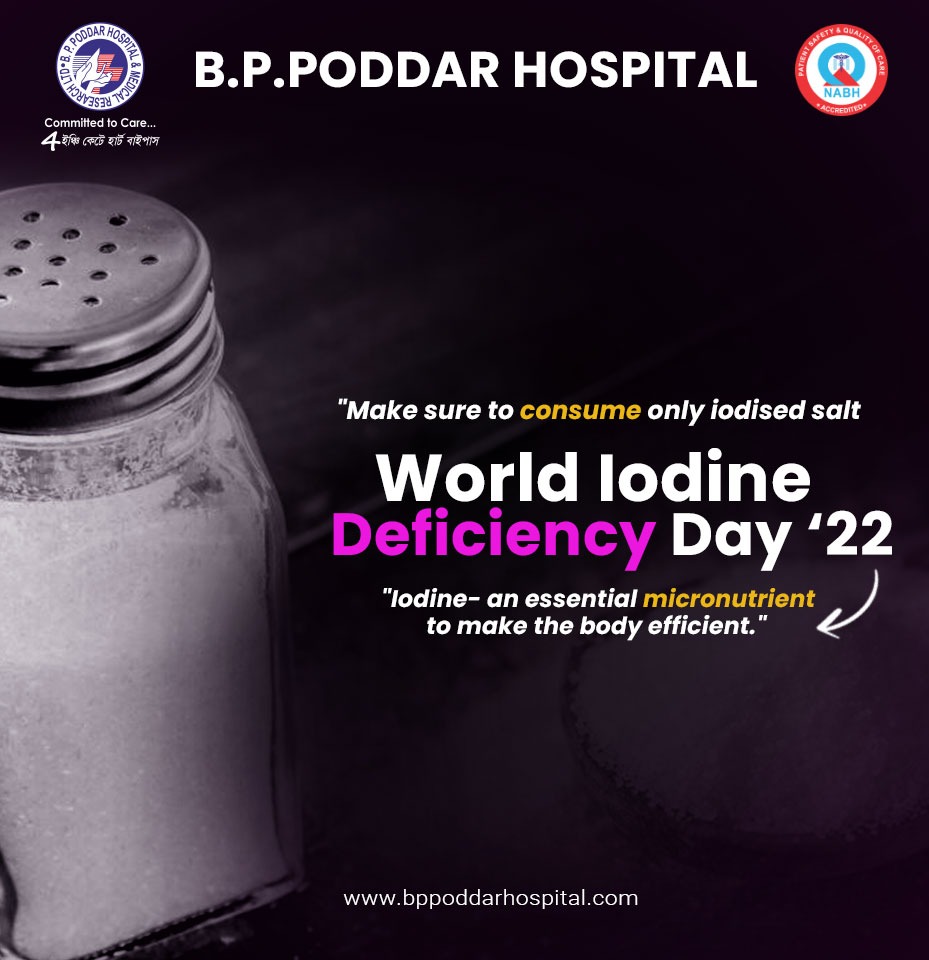
Iodine is a crucial component for maintaining human health. Iodine deficiency disorders (IDD) may develop if the thyroid gland is not able to operate properly. Goiters, mental impairment and even death are among the health issues IDD can cause. IDD affects millions of people each year making it a significant public health issue. The World Health Organization established October 21 as the World Iodine Deficiency Day in order to promote iodine supplementation as a successful means of preventing IDD.
What is Iodine Deficiency?
Iodine is a crucial trace element needed for the synthesis of thyroid hormones. The growth and development of the brain depend on these chemicals. Iodine shortage can result in a variety of health issues such as cretinism, mental retardation and goitre (an enlarged thyroid gland) which is characterized by stunted physical growth and mental development.
Causes
Iodine is a crucial trace element needed for the synthesis of thyroid hormones. Numerous crucial physiological functions, including as metabolism, growth, and development, are regulated by thyroid hormones. The most frequent worldwide cause of reversible mental impairment and brain damage is iodine deficiency. Making sure to regularly eat iodized salt is the greatest approach to avoid an iodine shortage.
Symptoms
Prevention and Treatment
Universal salt iodization: Every nation should make sure that the iodization of salt used for human consumption is sufficient. The most successful and long-lasting method of Iodine Deficiency Disease (IDD) prevention.
Iodine fortification of other foods: In some nations, staple foods like rice and flour may be given an iodine boost. The context and requirements of the local area should inform this strategy.
Health education and awareness-raising: It's critical to raise understanding of iodine's role in preventing IDD and the necessity of eating foods high in iodine.